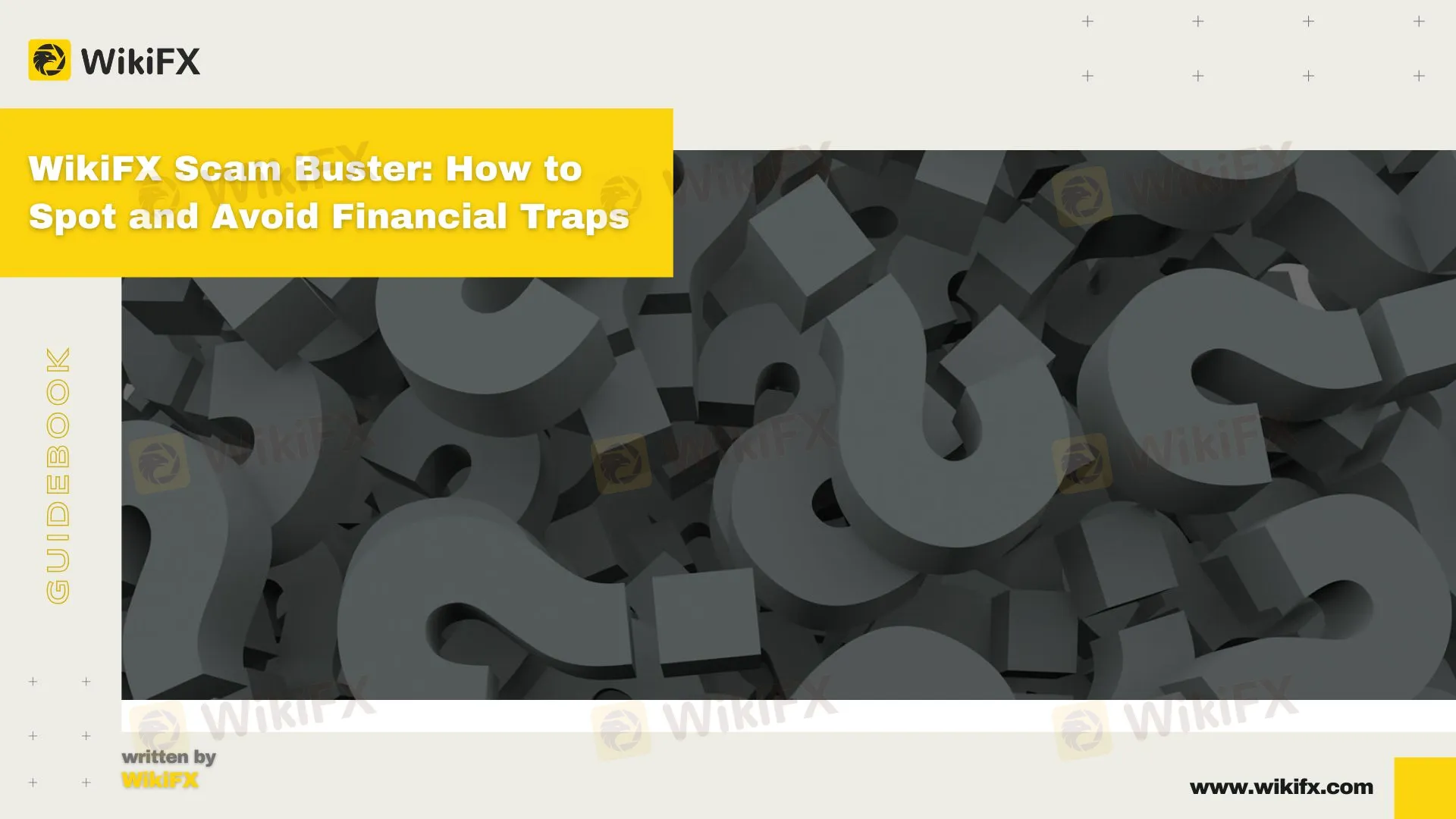简体中文
繁體中文
English
Pусский
日本語
ภาษาไทย
Tiếng Việt
Bahasa Indonesia
Español
हिन्दी
Filippiiniläinen
Français
Deutsch
Português
Türkçe
한국어
العربية
High Return Traps? WikiFX’s Complete Scam-Busting Handbook to Avoid Financial Fraud!
Abstract:Financial scams are evolving faster than ever, and fraudsters are getting more creative in luring victims into traps. Whether it’s promising high returns or leveraging authority to build trust, scammers continuously innovate new ways to trick investors. From clone firms to cold calling schemes, it’s essential to understand how these scams work to protect your hard-earned money. This comprehensive guide by WikiFX will help you recognize and avoid common financial scams.

1.Clone Firms: A Copycat Trap
Clone firm scams are among the most devious types of financial fraud. These scams involve fraudsters creating fake companies that closely resemble legitimate financial institutions. They often replicate the name, address, and registration details of genuine firms to appear credible. Clone firms may even use professional-looking websites, social media profiles, and fake documentation to mislead investors.
How to Identify
• Check Official Registries: Always verify company details through regulatory bodies like FCA or SEC.
• Spot the Minor Differences: Fraudsters often make slight changes in company names or website URLs.
• Contact Directly: Use official contact details from the authorized firm to verify any suspicious communication.
2.Online Trading Platform Scams: The False Promise of Profit
Many online trading platforms lure investors by promising massive returns through speculative trading on forex, cryptocurrencies, or stocks. These platforms often appear professional and may even have customer support that sounds credible. However, the real motive is to collect deposits and vanish without a trace.Warning Signs
• Too Good to Be True: Unrealistically high returns with low risk.
• Fake Testimonials: Glowing reviews from fake users.
• Unregistered Platforms: Platforms without regulatory authorization.
3.Cold Calling Scams: The Unsolicited Trap
Cold calling involves receiving unsolicited phone calls from individuals claiming to offer investment opportunities. These calls usually come with high-pressure tactics, urging you to act quickly before the “opportunity” vanishes. Often, the caller uses psychological manipulation to make you feel guilty for not acting fast enough.
4.Advance Payment Scams: Pay Now, Lose Later
Advance payment scams require you to make an upfront payment, usually under the pretense of securing a high-yield investment or unlocking a frozen account. Once the payment is made, the scammers either disappear or request even more money to resolve unexpected “complications.”
5.Recovery Scams: Offering Hope After Loss
These scams specifically target individuals who have already lost money in previous scams. Fraudsters contact victims, claiming to be able to recover lost funds for an upfront fee. Once the fee is paid, the supposed recovery never materializes.
6.Social Media Investment Scams: The Viral Deception
Scammers use social media platforms to promote fake investment opportunities. They might impersonate celebrities or use paid ads to lure victims. The investment schemes often look legitimate and promise quick profits, but once funds are sent, victims are blocked and left without recourse.
7.Ponzi and Pyramid Schemes: Fake Returns from New Investors
These schemes promise consistent returns that are paid out from new investors money rather than actual profit. As long as new investors keep coming in, the scheme appears sustainable. Once recruitment slows down, the entire structure collapses, leaving the majority of investors empty-handed.
Final Thoughts
Financial scams are becoming increasingly sophisticated, leveraging new technologies and exploiting human psychology to deceive victims. Always perform thorough research and verification before investing, and never make decisions under pressure. Stay informed, stay cautious, and protect your financial future.
Disclaimer:
The views in this article only represent the author's personal views, and do not constitute investment advice on this platform. This platform does not guarantee the accuracy, completeness and timeliness of the information in the article, and will not be liable for any loss caused by the use of or reliance on the information in the article.
Read more

Why More People Are Trading Online Today?
Discover why online trading is booming with tech, AI, and a push for financial freedom. From stocks to crypto, it’s a thrilling hustle for all.

Forex Explained in 60 Seconds: How It Works & Who Profits
Before diving into the forex market, it’s crucial to understand its mechanics, risks, and profit potential. Without a clear grasp of how forex operates, you risk losing money instead of making it. Here’s a concise breakdown to help you navigate this dynamic financial market.

Check Yourself: Are You Always Rushing for Trades?!
With market fluctuations happening in real-time and profits hinging on split-second decisions, many traders develop an impulse to act quickly. But have you ever stopped to ask yourself: Am I rushing into trades? If you’re constantly clicking “Buy” or “Sell” in a flurry of excitement or anxiety, you may be falling into a dangerous trap that could cost you more than you realise.

Exposing Trading Academy Scams: How Aspiring Traders are at Risk
In the age of digital finance, the promise of financial freedom through trading has never been more alluring. Social media is flooded with advertisements for trading academies claiming to turn beginners into expert traders in weeks, offering ‘guaranteed’ profits and ‘exclusive’ strategies. However, behind the glossy marketing lies a sinister reality as many of these so-called academies are nothing more than elaborate scams designed to exploit unsuspecting traders.
WikiFX Broker
Latest News
How Crypto Trading Transforms FX and CFD Brokerage Industry
UK would not hesitate to retaliate against US tariffs - No 10 sources
Navigating the Intersection of Forex Markets, AI Technology, and Fintech
Exposed: Deceptive World of Fake Trading Gurus – Don’t Get Fooled!
The One Fear That’s Costing You More Than Just Profits
Currency Calculator







